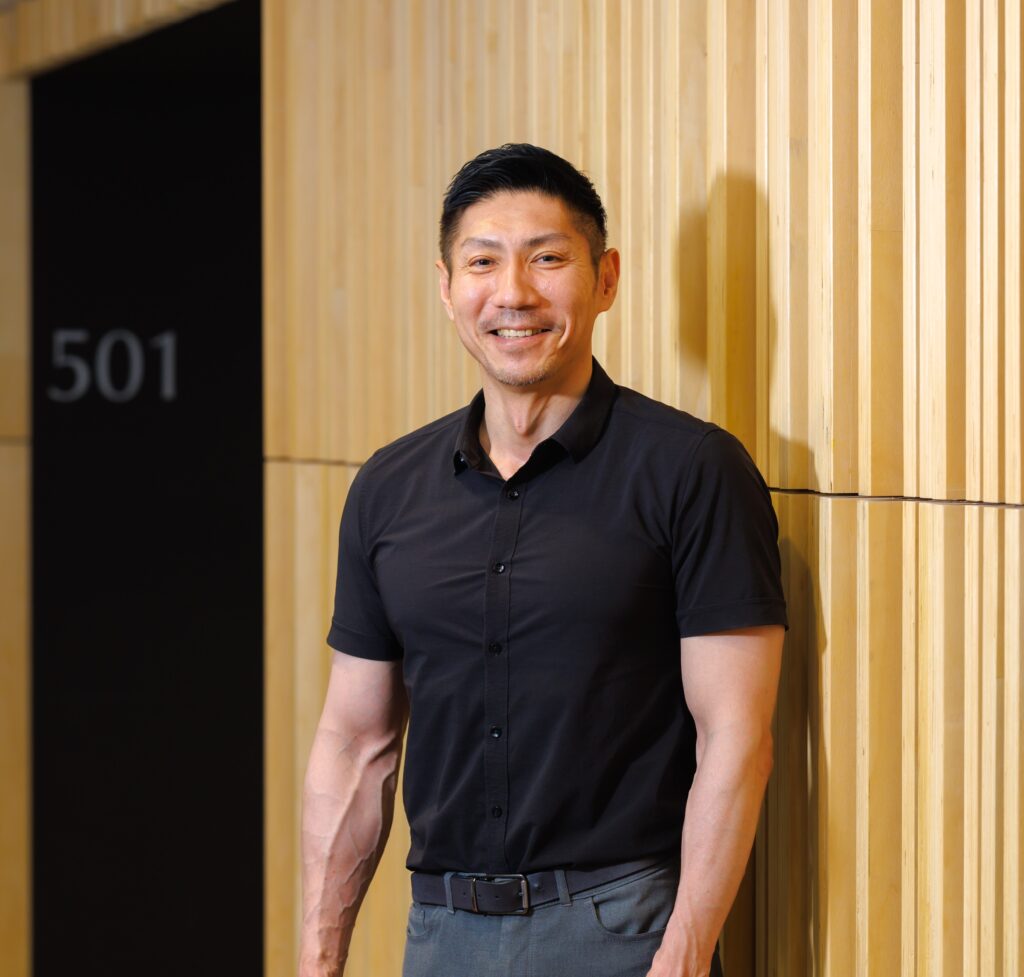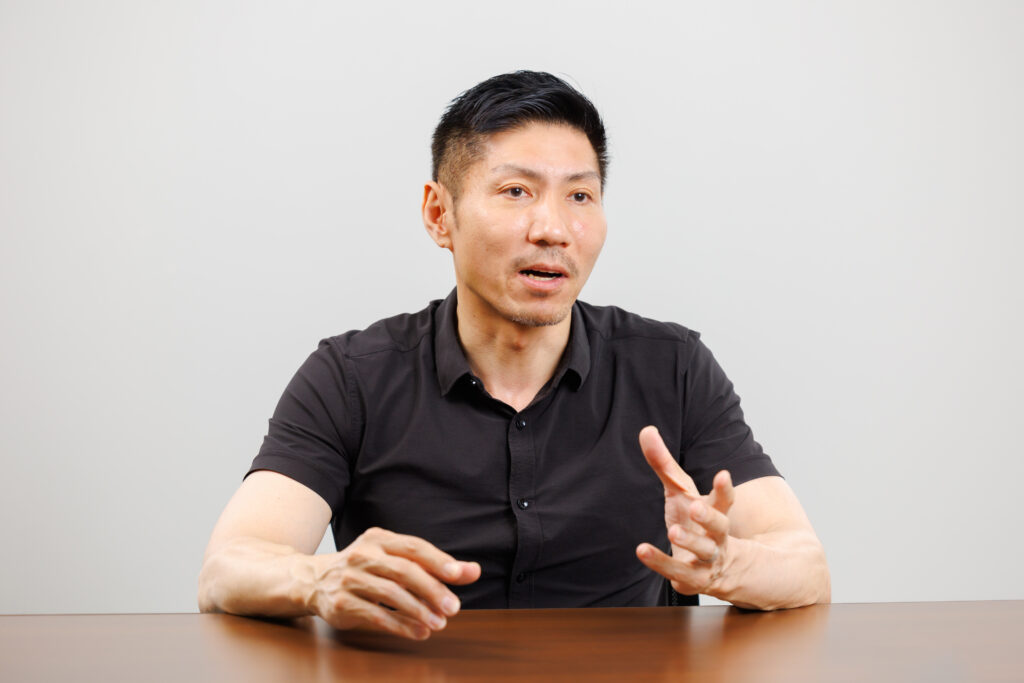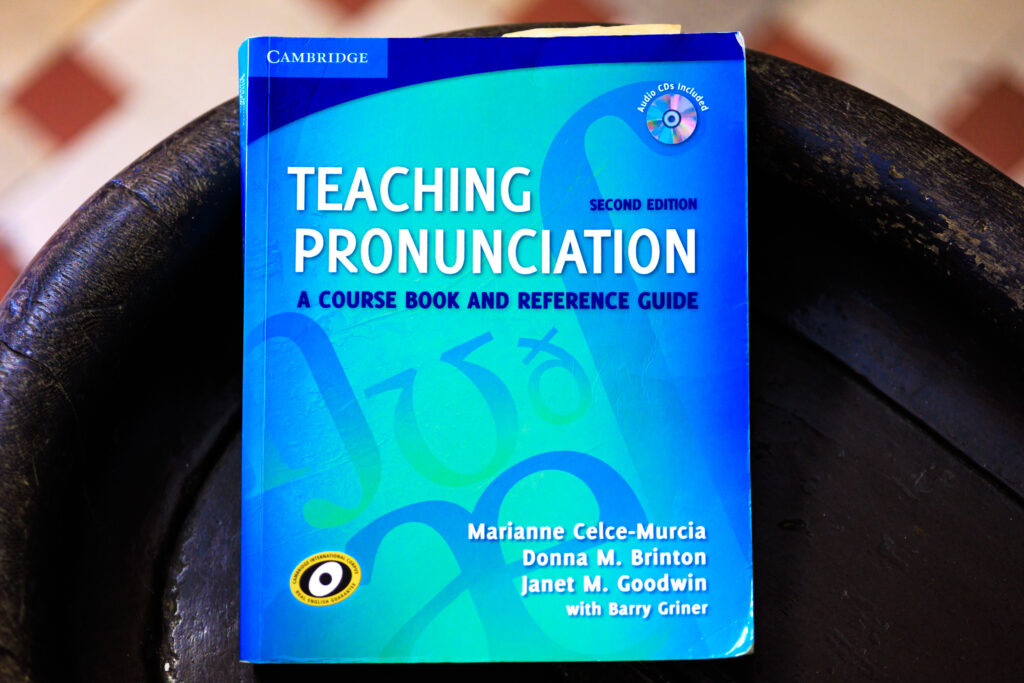
Associate professor Katsuya Yokomoto from the Center for Language Education and Research studies pedagogies for teaching English. Through research in teacher cognition, he explores pronunciation teaching for understanding second language English speakers and pedagogies for English learners with additional needs and disabilities.
I specialize in research on teaching pronunciation in English language teaching. In recent years, there is growing interest in World Englishes, which are localized or indigenized varieties of English languages spoken by people of diverse cultural backgrounds. I am interested in pronunciation teaching necessary for understanding these World Englishes.
While English is used as a global language, the parties actually communicating in English are often second language (L2) English speakers. In the case of Japanese people, they often have opportunities to speak with people from the neighboring countries of South Korea and China, and people working in the information technology sector and such tend to be of Indian ethnicity.
With growing globalization, there is greater need to align the thinking of people from various countries and regions. In communications between L2 English speakers, there are times when it is difficult to understand conversations due to each other’s pronunciation.
With this point in mind, I undertook research on the effects of raising awareness about the characteristics of English spoken by L2 English speakers. The results showed an improvement in recognizing and understanding words spoken by L2 English speakers from various countries.
Teaching of World Englishes and learners requiring accommodations all depend on the education of teachers

I hope to provide English learners with opportunities to learn World Englishes. However, in reality, many English teachers think it is enough to learn Standard English. For example, if a teacher only communicates with other Japanese people or with first language (L1) English speakers in the process of learning English and never experienced problems trying to converse with L2 English speakers, it will be difficult for them to feel the necessity or merit of teaching World Englishes.
Research in teacher cognition so far showed that, for pronunciation teaching, an English teacher’s experiences as a learner influence what and how they teach. I am very interested to know if the same can be said for World Englishes. I hope to continue this research to nurture teachers who can teach World Englishes proactively and effectively even if they do not have such experiences as learners.
Recently, I have the desire to think, from the aspect of teacher cognition, about the necessary considerations and issues for English teaching targeting students and children with additional needs and disabilities. I hope to observe teachers’ actions from various cases—including successes and failures—to discern tips for teaching.
There are teachers who feel that teaching students and children with additional needs and disabilities is difficult. My goal is to show practical examples to illustrate what they can do to make their class a success and alleviate their concerns.
A desire to change English teaching in Japan due to being poor at English before
I became interested in research on teacher cognition due to my desire to nurture teachers. Actually, English was one of my worst subjects at school. I resolved to become an English teacher during my second year in university.
After putting in a lot of work to learn English, I traveled to the US for postgraduate studies. From my experiences teaching L2 English students as a teaching assistant, I felt the importance of pronunciation and World Englishes and aspired to become a researcher.
Teachers can only influence the students that they teach, but if I produce results as a researcher, I can influence teachers and their students through them. The challenges I faced as an English learner in Japanese junior high and high school have inspired me to change English teaching in Japan. I hope to develop practical pedagogies as a researcher.
The book I recommend
“Teaching Pronunciation”
by Marianne Celce-Murcia, Donna M. Brinton, Janet M. Goodwin, and Barry Griner, Cambridge University Press

This is the authoritative guide for teaching English pronunciation. Besides serving as a reference for learners with its superb explanation of pronunciation, it is also rich with examples for teaching better pronunciation. Therefore, I hope people aspiring to become English teachers will read this book.
-
Katsuya Yokomoto
- Associate Professor
Center for Language Education and Research
- Associate Professor
-
Graduated from the Faculty of Economics, Aichi University, completed the TESOL master’s program of California State University, Sacramento, and received his doctor’s degree in Education after completing the doctoral program in TESOL/Applied Linguistics at the University of Bristol. Took on several positions—such as lecturer at Rikkyo University Language Center (current Center for Foreign Language Education and Research) as well as lecturer and associate professor by special appointment at the Center for Language Education and Research, Sophia University—before assuming his current position in 2024.
- Center for Language Education and Research
Interviewed: May 2024